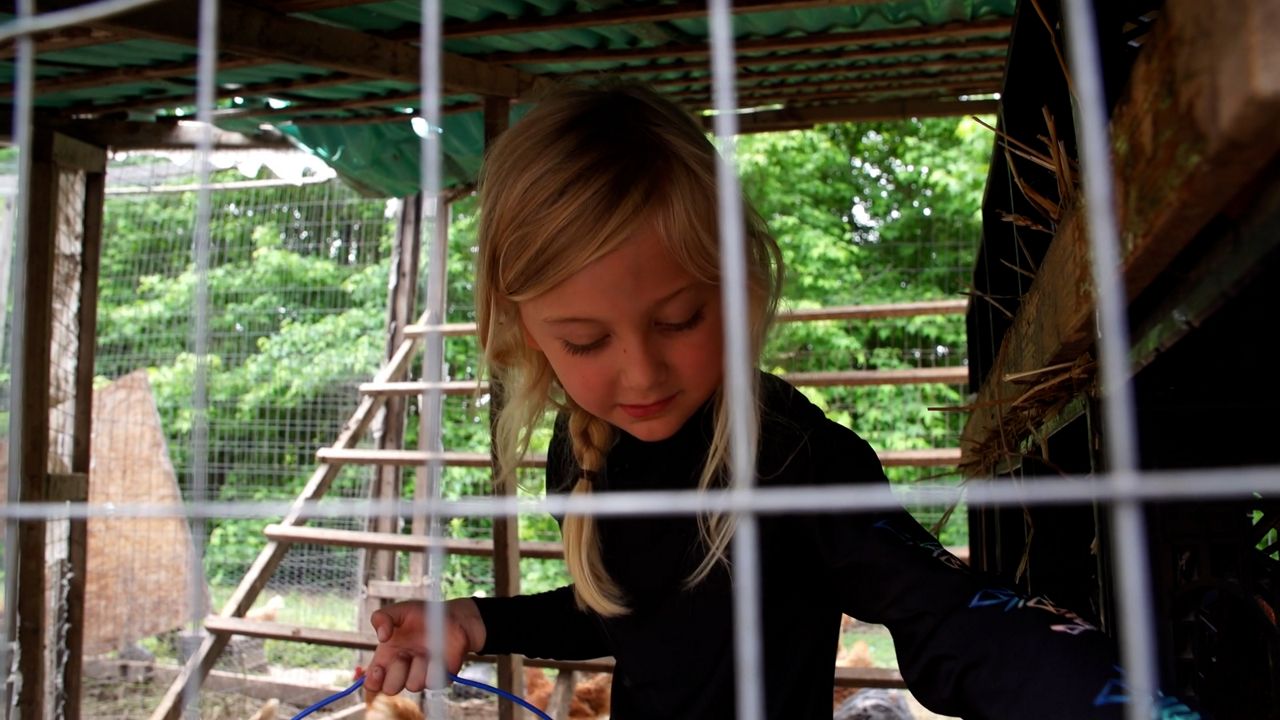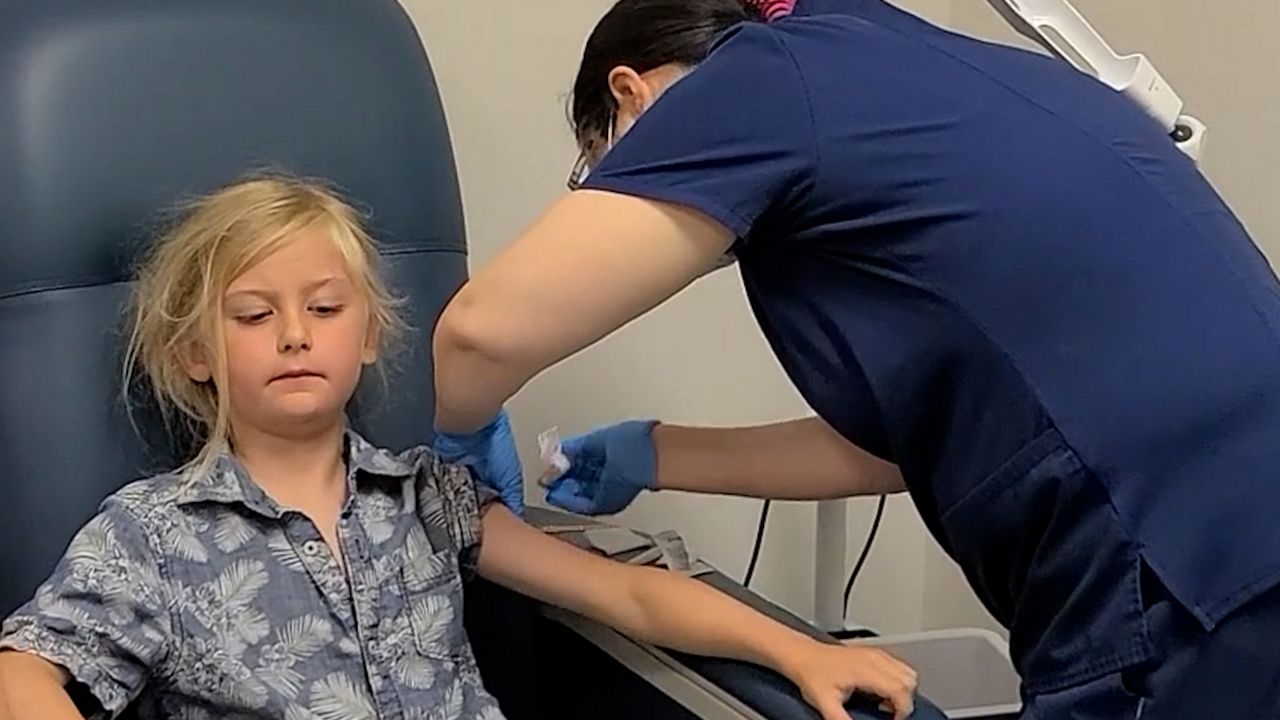In much of the country, venturing beyond manicured lawns, into the woods or wild fields means you’re likely heading into tick territory.
There is a lot of work underway to develop therapies to treat tick-borne illnesses and prevent them all together, including an ongoing Pfizer vaccine trial that has enrolled both adults and children. National Health Reporter Erin Billups introduces us to one family whose son is enrolled in the phase three clinical trial.
Whether it’s playing with his sisters, corralling the ducks, or playing with baby chicks, 7-year-old Seamus Naughton is outside a lot.
“I don't want my hands to get that dirty. So I'm not picking up all of them,” said Seamus as he helped gather chicken eggs for his mother.
“Seamus especially is like a very active kid. [He] really needs to be outside to feel his best, function his best,” said Taylor Naughton, Seamus’ mother.

The growing presence of disease-laden ticks though, has cast a cloud over the Naughton family’s love of outdoors. Since the CDC began tracking cases of Lyme disease in 1991 the number of cases each year has more than tripled.
“We love to go on hikes. We love to camp. You know, we've got our little farm out here. So we love to be outside. And we certainly don't want to discourage them,” said Naughton. “We don't want to be in the house like holed up because we're scared we're going to get Lyme.”
When Naughton learned of a pediatric vaccine trial for Lyme she jumped at the opportunity and enrolled Seamus. “I just felt like him being exposed to Lyme and or antibiotics consistently is more concerning to me than, you know, potential vaccine.”
“The incidence of Lyme disease has been creeping up and in some areas doubling and tripling,” said Dr. Sunanda Gaur, director of the Pediatric Clinical Research Center at Rutgers Medical School. “That has to do with deforestation and how climate change and all of that might be playing into why Lyme disease is more prevalent now.”
Gaur is leading the Pfizer-Valneva Lyme vaccine site at Rutgers, where Seamus is enrolled. The phase three trial includes more than six thousand participants ages five and older, and is testing the efficacy of a novel approach to tackling Lyme.
Instead of fighting lyme once it’s within the body like traditional vaccines, the immunized person delivers neutralizing antibodies to the tick once it attaches.
“The deer tick that's carrying the Lyme bacteria bites the person, the antibodies from the blood actually enter the tick's guts and they kill the bacteria in the gut,” explains Gaur. “So the tick, as it feeds on the person, can no longer transmit the bacteria to the person and therefore protects them from getting Lyme disease.”

Full vaccination requires four doses, which Naughton says Seamus had no reaction to. “He didn't have any symptoms after the fact. He didn't swell. He didn't get a fever.”
The companies report that phase two trial results show the vaccine, called VLA15, triggers robust immunogenicity — meaning production of the neutralizing antibodies that kill the Borrelia burgdorferi bacteria, which causes lyme disease.
Children were included in Pfizer’s Lyme vaccine trial nearly from the beginning, because Gaur said, kids may need a vaccine even more than adults. They’re more likely to pick up a tick when playing outdoors.
“It's hard. You can't always control what they want to wear,” said Naughton. “I am optimistic that, you know, there's more and more options, maybe for researchers to find something that works that's effective.”

Phase three trials are still ongoing. It may take a couple years before Pfizer can apply for FDA approval of VLA15. They need to first complete required follow up of participants.
Gaur says whether approval comes sooner rather than later, people should still take precautions while spending time outdoors; by wearing light colors, using bug spray with 30% DEET and doing tick checks.
“When they come back home, you do the tick check, which means you look at all those areas behind the ear, in the folds, in the axilla (underarms), in the groin, all those little spots with the kids, the ticks like to go and hide and remember they're very tiny,” said Gaur.
Because it’s not just Lyme that ticks carry. Both a malaria-like illness called babesiosis and alpha-gal syndrome, which triggers a meat allergy, are among about a dozen other diseases that can be passed from ticks to humans.
There are vaccines in the works for that too. Researchers at Yale University have developed an mRNA vaccine that targets tick saliva, preventing the bugs from feeding well.
“That's actually very fascinating because you're arming a person against the tick itself and then that would work for any tick borne diseases, particularly with the deer tick,” said Gaur.



